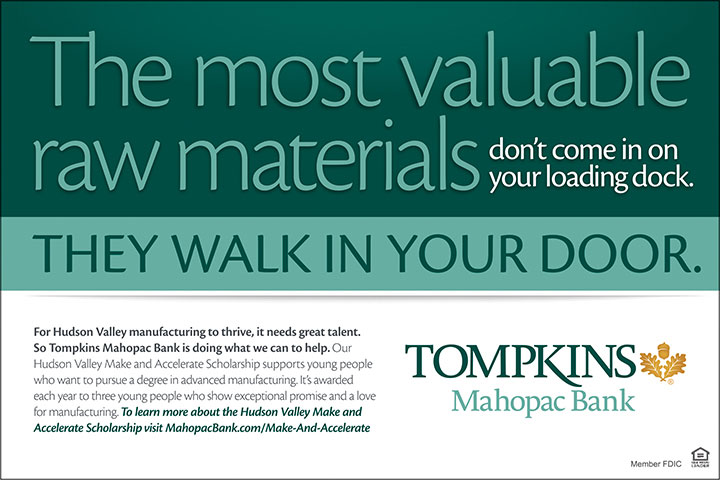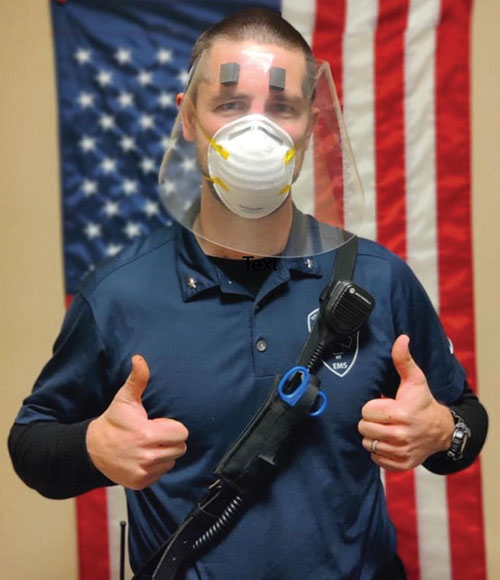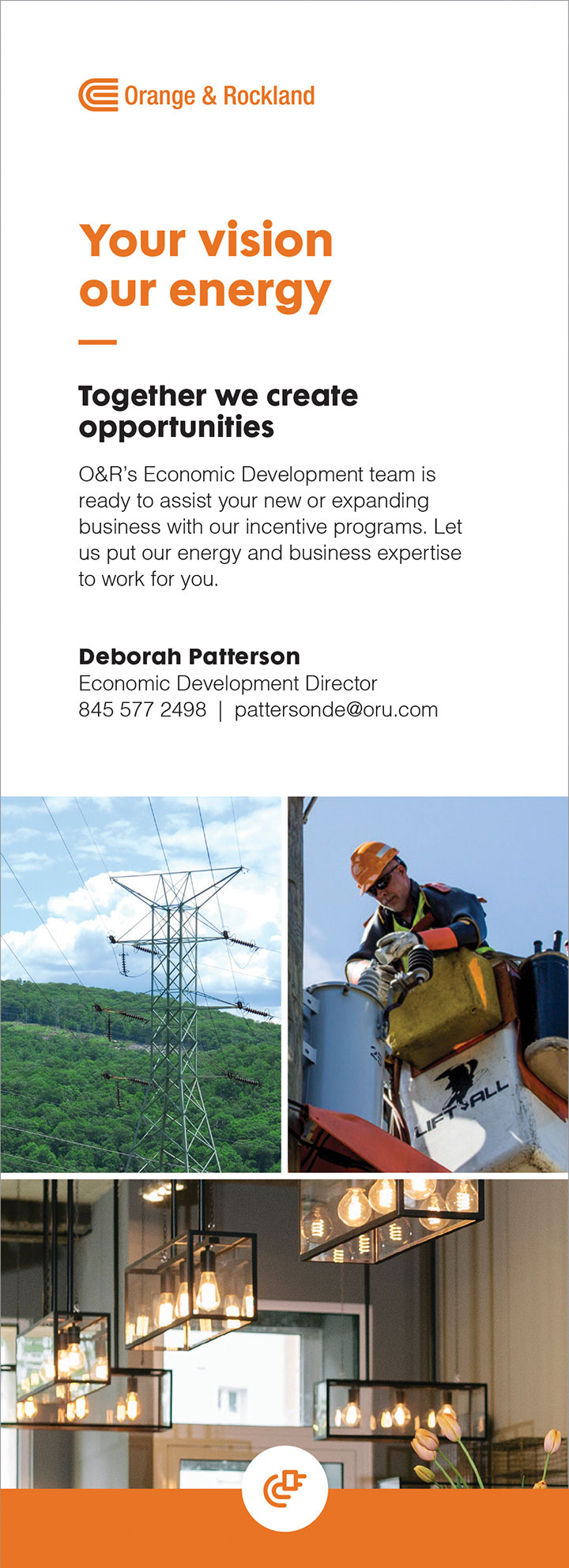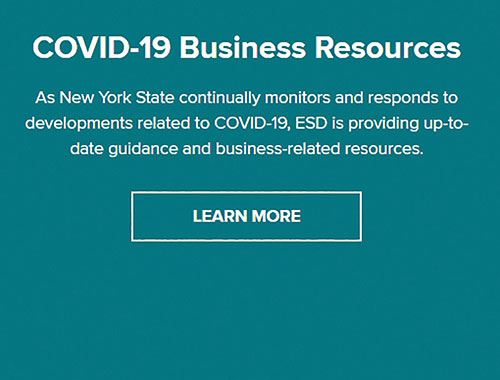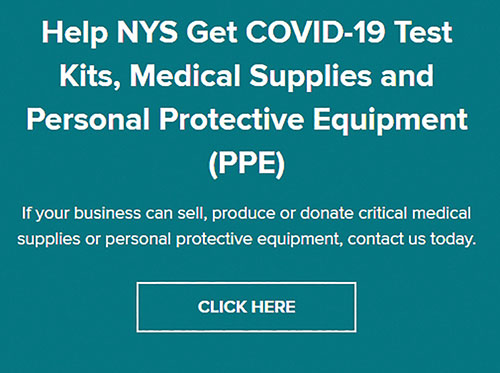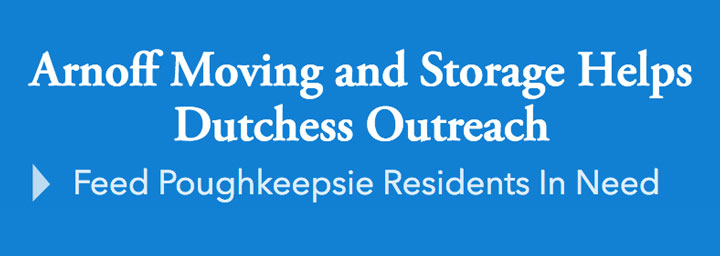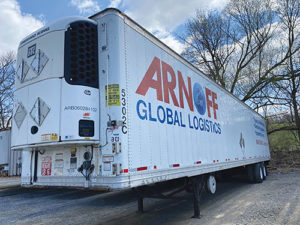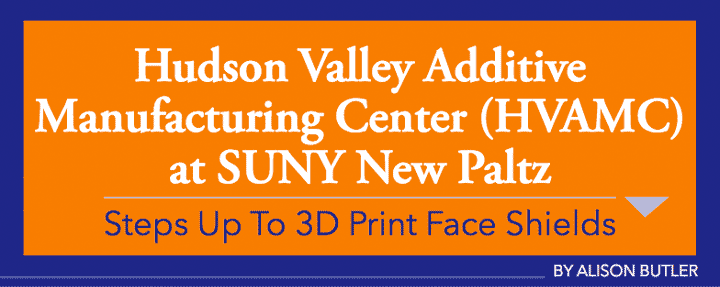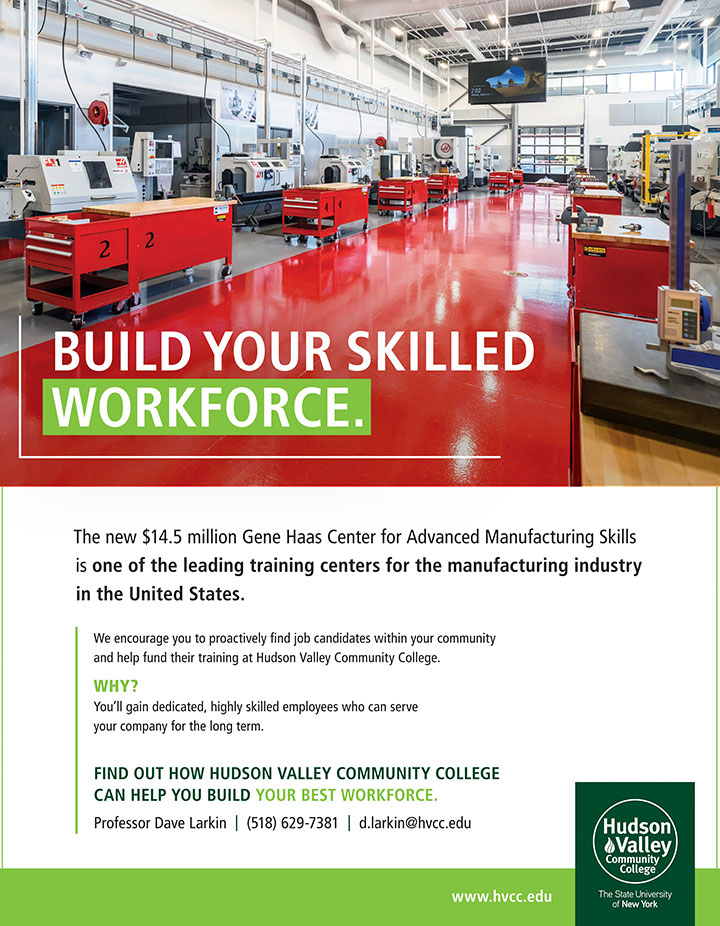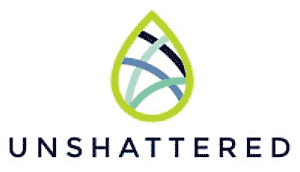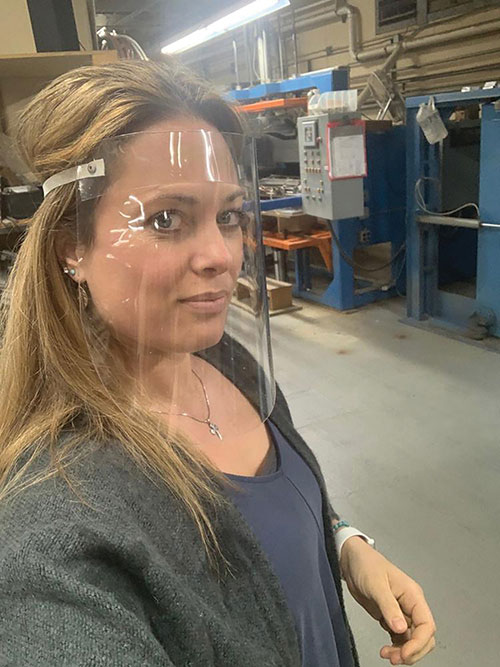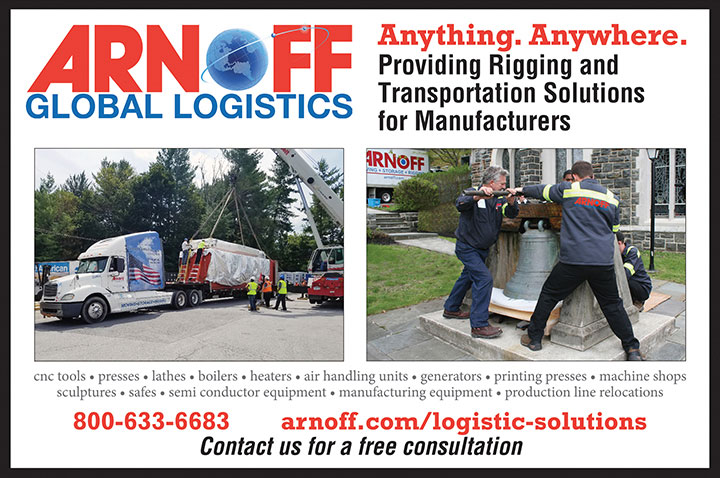Manufacturing Steps Up
by Council of Industry Staff
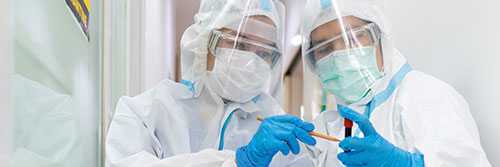
The Council of Industry counts among its friends and members some of the most community minded and generous organizations in the Hudson Valley region. Every day our members and friends donate their time and money to organizations and causes supporting healthcare, education, poverty remediation, the arts and more. So it should not come as a surprise that so many have stepped up to help those in need during the Coronavirus Crisis.
What is surprising is how quickly and decisively they acted. From reconfiguring lines and utilizing 3D printers to produce PPE, to donating time and resources to make sure students in need get the tools they need to learn remotely and have enough to eat, to a state agency working 14 hour days 7 days per week to help businesses cope with the shutdown organizations turned on a dime to jump into action.
HV Mfg thought we would take a few pages to share SOME (just some) of the stories of organization that are part of our association rising to the occasion. This is my no means complete and there are literally dozens more. We do, however, think these stories are indicative of all the ways our members and our friends have gone above and beyond to help our region get through the coronavirus crisis. We are proud to tell these stories, and of all the members of our association.
CI: What you are doing at ACCESS Supports for Living to keep employees and clients healthy?
CM: Through organized leadership, early on as COVID-19 was unfolding, we began planning to ensure the people we serve and our staff were safe. Our team was trained in FEMA Emergency response and we operationalized a command response center at the beginning of March. This command center is available and covered 24/7 to respond to needs. We have operated one of the largest organizations in the HV through a combination of work from home and skeleton crews needed to provide services.We have secured needed PPE for ACCESS and many other Hudson Valley organizations, partnering with local and national manufactures. We have also supported dozens of other HV organizations by sending them several thousands of masks and face shields and hundreds of gallons of hand sanitizer. Pretty cool!
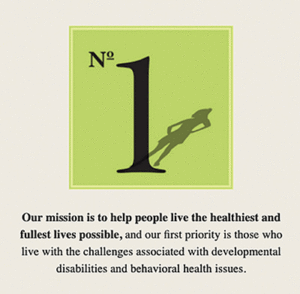
CI: What mental health programs are available?
CM:On March 23rd we opened a 24/7 Virtual Mental Health and Substance Use Urgent Care serving our community. We have served hundreds of clients through this service. This has been a huge service and one covered by several media outlets. Services can be reached at 1-888-750-2266.
ACCESS launched a webinar series on 4/20 to support those families who are navigating this pandemic with special needs family members.
CI: How did ACCESS shift gears to help with PPE?
CM:Our team began sourcing PPE both locally and throughout the nation. We have been very successful in procuring face shields, masks, and also entered into production of hand sanitizer with Black Dirt Distillery, with the assistance of HVEDC and Senator Schumer. Through this sourcing we have been able to help ourselves and support our partners by sending thousands of masks and face shields and hundreds of gallons of sanitizer to HV organizations.
CI: What obstacles have you faced and how did you overcome them?
CM: Like others, the safety of our clients and staff came first. Securing PPE has been a documented challenge for everyone, ACCESS has led by proactively finding sources with local partners like Orange Packaging, Black Dirt Distillery and USHECO, but also sourcing from Florida, Tennessee and Vermont.We supplied our staff and also distributed several thousands of masks around the Hudson Valley.Running our business and working with folks who have I/DD is a challenge during what was a normal time. Add the anxiety and limitations we are faced with today and I say our staff has been doing heroic work with very little recognition. We have over 500 direct support professionals on the front lines every day.We had to pause on some of the ACCESS Business Solutions contracts like our new Merchant Marine deal, but we simply opened up to the opportunities that presented themselves. We are currently working with new customers on the product side while launching a digital marketing campaign. Additionally, we are in the process for new contracts with janitorial customers.
CI: How do you see ACCESS emerging from this?

CM:INCREDIBLY well positioned – by taking a leadership role in PPE, by innovating and still delivering services on the front line and giving back to so many – we are well positioned.We showed the ability to use our manufacturing experience to pivot quickly. We have several local manufacturers who want to partner when we get through this. There are new customers and new business opportunities.We showed our courageous commitment to our clients who are the most vulnerable folks in our community.We deepened relationships significantly with private sector, government, non-profits and once again showed we are a true and reliable partner of the region.
From Prototype to Full Production – Filling The Need
by Taylor Dowd
Newburgh-based manufacturing company Orange Packaging has ramped up production to create PPE amid coronavirus. The company designs, manufactures, and delivers reusable face shields made with a clear RPET mask.In recent weeks, the company has received thousands of face shield orders as hospitals seek to find ways to protect frontline workers and acquire sufficient amounts of protective gear for frontline workers. St. Luke’s and Nyack Hospital, among other New York hospitals, have quickly become eagar clients.
Orange Packaging owner Michael Esposito was able to gain traction after his brother, Anthony, made a face shield prototype. Social media allowed Esposito to share the idea, and quickly after, the company began to receive order inquiries.
“Forty-eight hours later we were filling orders. From that Facebook post it just blew up with friends of friends sharing it. To date, we are over 100,000 shield orders within two weeks, and we have orders flowing in,” says Esposito, according to T-SEC.
Stepping up to fulfill demand has required Esposito to shift his company’s business model and convert production–which usually entails creating fixtures, signs, parts, and other packaging–to focusing on making face shields. Orange Packaging will add a permanent line of PPE products to its list of services, according to Spectrum News.
New York State’s Regional Economic Development Councils
Sharing Critical Information and Fostering Communication
When Governor Cuomo created the Regional Economic Development Council’s in 2011 his intent was to re-invent the way economic development was handled in the state, decentralizing decision making and encouraging each of the 10 regions across the state to develop long term strategic plans for their economic growth.
In this regard the Regional Councils have been a huge success, targeting investment in projects that each region has prioritized stimulating, job growth, wage growth and additional private investment.
As the COVID 19 pandemic has unfolded however, The Regional Councils proved to be an even more valuable resource for New York State than we thought. The Councils – especially our own Mid-Hudson Regional Council became a vital conduit for information critical to flow to the business community, non-profit organizations and municipalities. And, perhaps even more important, for information to flow from those entities back to the state decision makers in Albany.

Staffed by employees of Empire State Development, the Councils are public private partnerships made up of volunteer local experts and stakeholders from business, academia, local government and non-governmental organizations. In the Mid-Hudson the Council, under the leadership of Meghan Taylor, has become a tight knit group of leaders who work closely together to further the interests of the Hudson Valley.
As the crisis unfolded and the shutdown loomed the Regional Council sprang into action. Working 12-16 hour days 7 days per week the ESD and Regional Council staff fed information through Council members to county and municipal governments, business leaders and community organizations like the Council of Industry. The vital information on paid leave, unemployment extension the need for critical supplies and how to access state and federal support flowed quickly and accurately, providing answers and reassuring business.
When the all-important discussion of “Essential” and “Non-Essential” businesses took place it was ESD and Regional Council staff that shared information, fought for critical industries and generally kept the lines of communication open. When the call for additional PPE and companies to help produce ventilators went out it was the Regional Council that collected that information. They were able to communicate the frustration of companies that wanted to help, and could help, but did not know where to turn to decision makers in Albany, ultimately shaping the improvements to the State’s process for organizing support.
When the shutdown began in March Dutchess Outreach, a Poughkeepsie-based non-profit that provides a variety of services for those in need, became overwhelmed with requests for help. The organization, struggling to meet the needs of city residents, reached out to Mayor Rob Rolison and others.Dutchess Outreach runs a food pantry as well as the Lunch Box at the Family Partnership Center to provide food for those that are nutritionally disadvantaged. The pantry provides emergency food supplies designed to feed people for up to five days. The amount of food distributed is based on the number of people in the household. The nutritional supplies have a variety of fruits and vegetables, protein sources such as frozen meat, tuna fish, and peanut butter. Grains are also part of the supply including bread, pasta, rice, and cereal.
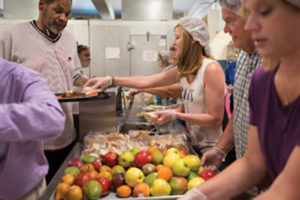
The pandemic and the resulting shutdown has forced the Family Partnership to limit access to its building. This in turn forced Dutchess Outreach to relocate their pantry to the basement floor so the food could be distributed to people waiting outside. The enormous task of moving the entire pantry with a limited staff was made easier by the mayor. City of Poughkeepsie employees moving pantry items for Dutchess Outreach. “When we needed to move all of the food, including non-perishables, refrigerated goods, and frozen meat along with the freezers. Mayor Rolison sent Poughkeepsie DPW workers to help. “We couldn’t have done it without them,” said Associate Director Tara Whalen.
In addition to moving the pantry, space was needed to store the refrigerated items. Mayor Rolison knew who to reach out to – he called Mike Arnoff, President and Council of Industry member. Arnoff Moving and Storage and Mike went to work finding the resources.
Though refrigerated trailers are in high demand right now Arnoff finally located a 53-foot refrigerated trailer and delivered it to the parking lot of the Family Partnership Center.
“When the Mayor reaches out for help during a pandemic you just react – you listen to his needs and find a solution. The city needed a place to store refrigerated food for families in need. We solved the problem with a refrigerated trailer. Sourced it and had it delivered within 24 hours,” said Arnoff.
Praising the combined efforts of her staff, the City of Poughkeepsie, and Arnoff Moving & Storage, Whalen said “The assistance provided to our Dutchess Outreach staff by Mayor Rolison, city workers, and Arnoff have made it possible for us to continue to feed those in need. This display of teamwork is something everyone can be proud of.”
Without our dedicated force of community volunteers, Dutchess Outreach would not be able to provide the range of vital services necessary to the residents of Dutchess County.
When the call to produce more PPE went out The Hudson Valley Additive Manufacturing Center (HVAMC) at SUNY New Paltz jumped in with both feet. As Dan Freedman, Dean of the School of Science and Engineering at SUNY New Paltz explains on the CI Podcast devoted to this story. “We were contacted almost simultaneously by the Ulster County Executives Office and Mike Oates at Hudson Valley Economic Development Corporation saying there was a need for Personal Protective Equipment and was there anything we could do.”
In response HVAMC’s Cat Wilson and Aaron Nelson found the plans for 3D printing the face shields and redesigned the model to a more functional and comfortable version. The main visor and the band in the back were printed at HVAMC but the next obstacle was sourcing the materials for the elastic and shield portion locally. With material stores sold out of elastic they have decided to use 3.5” rubber bands. For the shields, they came up with the idea of using transparencies for overhead projectors as the shield portion and this worked out very well.
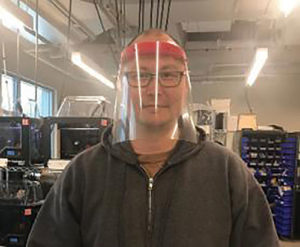
HVAMC currently has 17 desktop printers running and 3 bigger Stratasys printers producing 200 a day in the Center. The NOVO Foundation and council member Central Hudson have both given generous donations to keep this initiative going.
Thanks to this generosity the PPE has been donated to the first responders and hospitals in need locally. They are delivering 100 per day to Ulster County and sending more down to Orange Regional Medical Center. The need for more is still great and immediate with some saying New York City could need 15 million in the next few months. They are still working on securing materials and supply chain logistics with help from Council of Industry member, IBM.
Increasing production has been another hurdle. IBM has also been very helpful in cutting plastic for face shields in addition to 3D printing parts and providing design and supply chain knowledge that is vital to ramping up production of these as quickly as possible. HVAMC is also working with USHECO, an injection molder in Kingston and Council of Industry member, to make more parts faster.
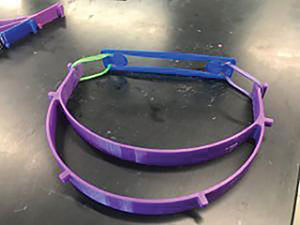
The outpouring of people wanting to contribute has been fantastic, there are now upwards of 30 different high schools, colleges and companies printing parts on 3D printers including Council members Schatz Bearing Corp, and Allendale Machinery Systems. Rondout and Red Hook High School are also contributing 3D printed parts.
“Everyone’s help is tremendously appreciated,” said Freedman. “The whole project speaks to the idea of community pitching in during difficult times. This pandemic is like nothing most of us have ever seen, and 3D printing provides a unique way of handling the crisis.”
If your organization has 3D printers or materials needed and would like to pitch in you can find information, plans, advice and more here.
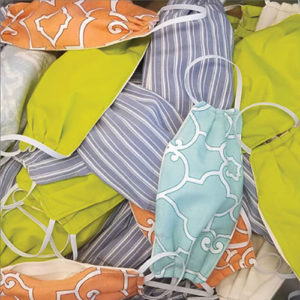
At the Council of Industry all manufacturers are special, but for me some are a bit more special. In fact, I have a favorite and that favorite is Unshattered, a manufacturer of custom handbags in Hopewell Junction, Dutchess County.
Unshattered is a 501c3 nonprofit social enterprise. Their mission is to end relapse by providing job skills, training and employment for women in recovery from addiction. Since 2016, Unshattered has been manufacturing handbags and accessories crafted from repurposed materials designed and produced by women winning their battle against addiction.
When Governor Cuomo ordered non- essential businesses to close March 20th there was an exception for organizations serving populations who were economically at risk. It was, however, unclear if Unshattered qualified under this exemption and since fundamentally they are manufacturing handbags, they needed to abide by the clearer mandate to decrease workforce and close their doors.
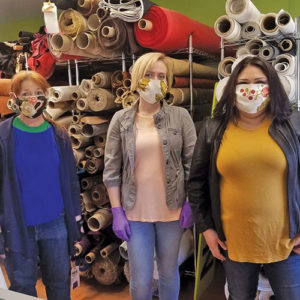
During the same press conference, however, the Governor also called for help from anyone or any company who could produce personal protective equipment including face masks In less than 24 hours the Unshattered team drafted a mask, consulted with a physician from Vassar Brothers Medical Center, and began producing a safe and effective product. By Saturday at noon they were in full production mode and back to being essential.
Pivot / Purpose
I asked Kelly Lyndgaard, Founder and CEO how this disruption was impacting the team, she answered by providing a little context and background.
Kelly got involved with a local recovery home after hearing how difficult it had been for women to get back on their feet economically and maintain their sobriety even after completing a twelve-month residential program. The women on her team tell her that the substance wasn’t the problem, it was the solution – a bad solution. “Theywere using as a solution forthe pain and if you can getthem to sobriety and givethem purpose, community,meaning and stability they are the most resilient, creative and hardworking employees you’ll ever find.”
“So, to answer your question directly: They have been incredible. This team turned on a dime. They rebuilt our manufacturing process, drafted and designed a quality product ready to go in twenty-four hours. They changed their roles internally and stepped up – they handled all of it.”
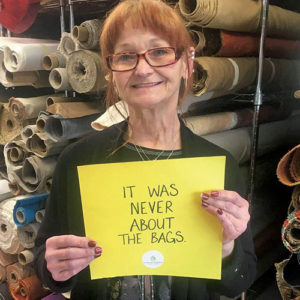
Demand / Volume
The team is busy making and donating masks to hospitals and care givers, receiving orders by the thousands. They are booked about three weeks out and have over 3,000 orders in the system. The team quickly realized they alone could not meet the demand and put a call out to the community for help. They posted the pattern on the website and started a community collection program, they set up a touch free drop box outside of the office to accept mask donations.
Unshattered continues to pay the wages of their employees while donating time, resources and materials to fulfill the healthcare orders, they depend on the donations from the community to make this happen.
If you want to learn more or help visit: www.unshattered.org.
In early March, as the effects of COVID-19 first began their ripple through society and the economy the customers of USHECO Inc., a small manufacturer of custom plastic parts in Kingston, stopped placing orders and the company was cutting back employee hours.
It was about this time that designs for plastic face shields started to come out and the company was able to, as Strategy & Communication Coordinator Alethea Shuman describes it, “pivot and find an opportunity to stay open and be helpful.”They rapidly changed their production focus to this important piece of personal protection equipment. This is a small company and they have learned a lot about flexibility in the past couple of years, so they were able to switch easily.
“We are teaming up with one of our direct competitors out of Connecticut to produce these. We are also working with Zumtobel, another Council of Industry member,to help with sourcing and they offered to set up a clean cell to allow us to manufacture face shields there as well. That adds another 20,000 we will be able to produce each week.” This will help USHECO to ramp up for the 500,000 orders already placed and the potential for another 800,000. The biggest limitation is securing enough material to keep up with demand and after that is the availability of machinery. Another Council of Industry member, Ertel Alsop, has offered use of their die cutters if needed.“USHECO is willing to work with anybody and everybody that is willing to step up to the plate.”
USHECO is also working with Hudson Valley Additive Manufacturing Center (HVAMC) at SUNY New Paltz and M-Tech Design. Dan Young at M-Tech Design was able to make a mold for the headband portion in 4 days, this is a process that usually takes 8-12 weeks, an incredibly fast turnaround. USHECO is now producing the headbands for masks going to Dutchess and Ulster Counties. The mask itself is being assembled somewhere else but USHECO has produced 5,000 of the headbands for them so far.
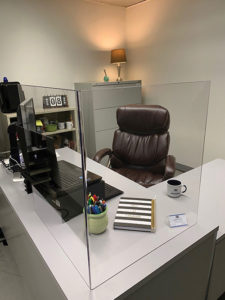
USHECO is able to keep its employees safe while producing this important PPE. Because they are small, with only 10 people on the production floor at a time in 40,000 sq ft facility there is plenty of room for 6 feet of separation at all times. In addition, they are cleaning surfaces every day with bleach and employees have access to face masks. The facility doesn’t allow visitors inside, but an exception was made for the County Executive to tour recently while wearing a face mask.
When considering the future, the availability of materials is a concern. The USHECO face shield design is a reusable one using a heavier material that most companies do not have the equipment to bend but fortunately, USHECO does. The new design they are working on currently is a disposable mask using a thinner material but supplies of this won’t last forever. Shuman wonders, “How long can the raw materials last? We make our traditional products from these same materials for companies that supply electronic parts. When business starts to go back to normal will we have the materials to still make our products?”
Hudson Valley Plastics is a manufacturing plant in Pawling that produces small, custom-made plastic parts for clients in industries including cosmetics, automotive, and food and beverage.
The healthcare industry has been in such high demand, however, that the company halted its regular manufacturing in order to fulfill healthcare orders. Now, Hudson Valley Plastics prioritizes creating dosage cups, test tubes and PPE.
“These are not products we’ve ever had to ramp up production for,” says Diana Tomassetti, the president and CEO of Hudson Valley Plastics. “But at this point in time, you follow where the demand for your services is most needed and thanks to our innovative team, making the shift will not be difficult,” Rockland County Business Journal reports.
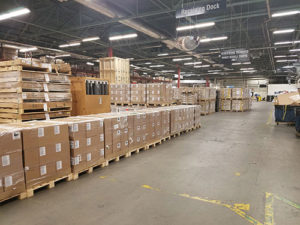
Council of Industry member IBM Poughkeepsie has stepped up in many ways. In addition to helping HVAMC with face shield production, they are providing tablet devices and internet connectivity to NYC public school students, with a goal of putting 300,000 mobile learning devices in the students hands by mid-May.
IBM is partnering with the City of New York and the Department of Education to provide students with the technology they need to stay connected and learning during this challenging time. A company statement says, “We have all been forced to adapt to new ways of working, learning, and interacting during this pandemic. This is especially true for our young people who have been displaced from their schools and daily routines. We view it as our responsibility to leverage the very best of our technology to lessen this burden – and to give students with the tools they need to succeed.”
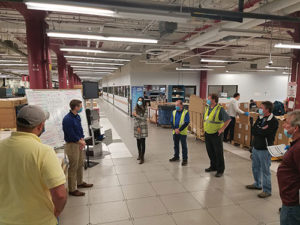
So far IBM has deployed in excess of 100,000 tablets that are internet ready and loaded with all the software that students will need to continue their academic year. They are on track to deliver an additional 200,000 in the coming weeks. The provisioning work is being done from their Poughkeepsie site by a very dedicated team. While following social distancing and health guidelines they have designed a manufacturing facility and scaled to capacity in order to fulfill this incredible opportunity. The site is producing in excess of 5,000 tablets a day.
This project builds on a deep commitment that IBM has to the New York City community and its schools. IBM is thankful for this opportunity to help and work with Commissioner Jessica Tisch (Department of IT & Telecom) who has been a great partner.


